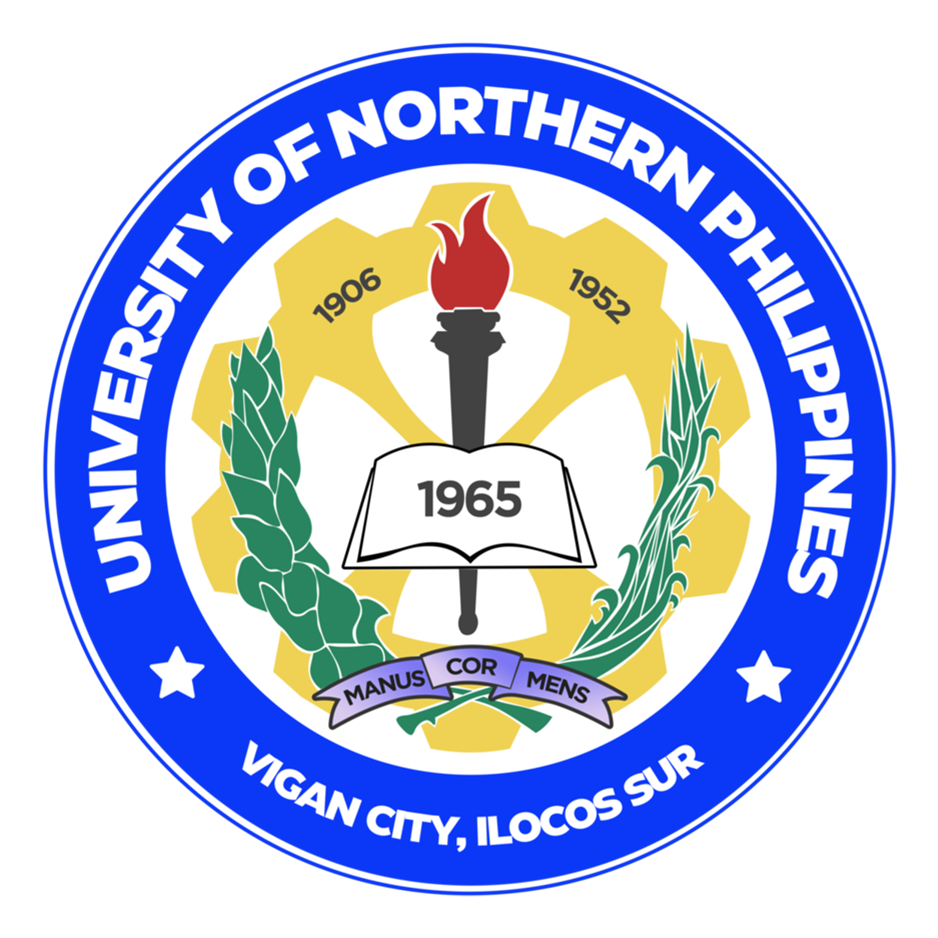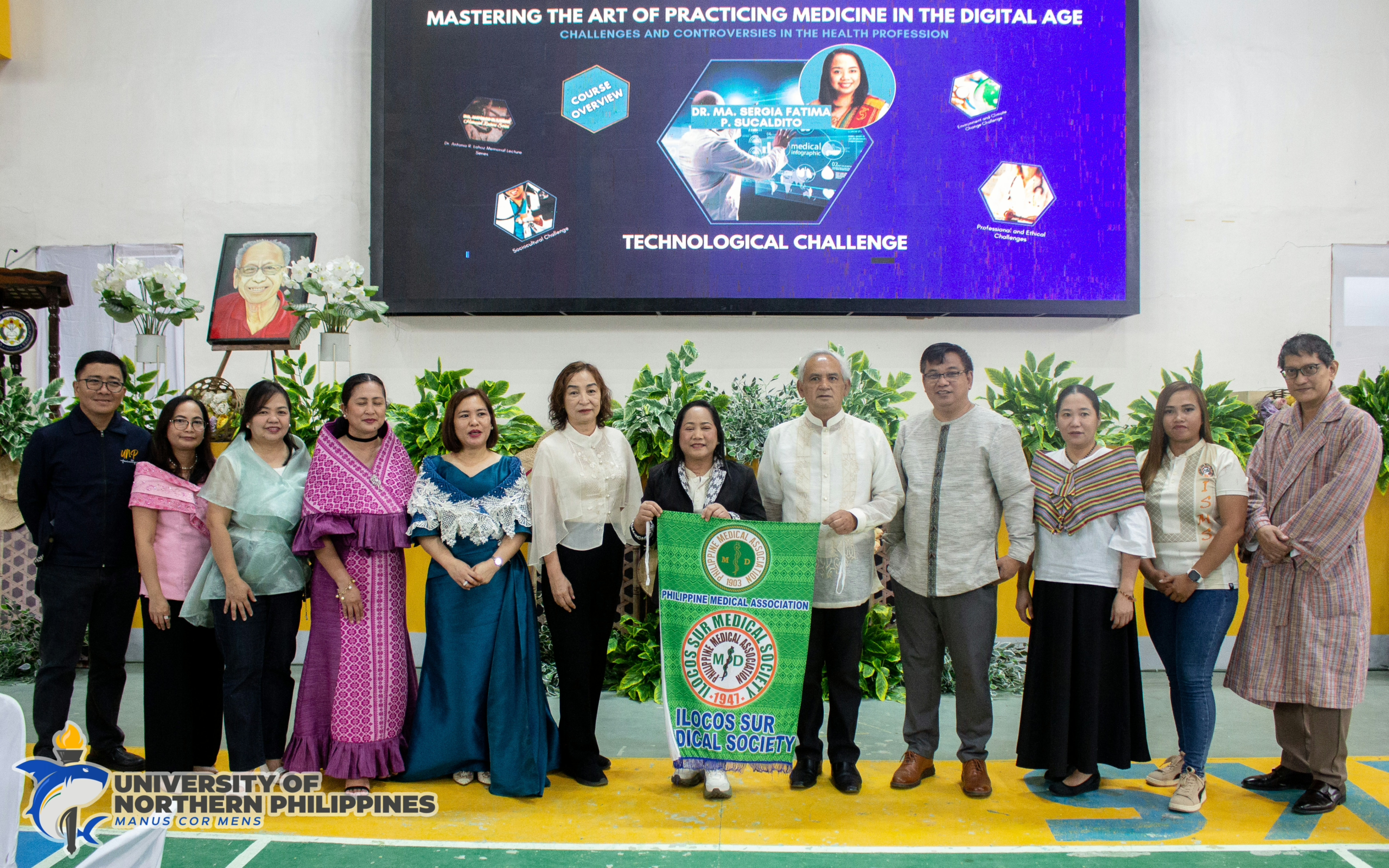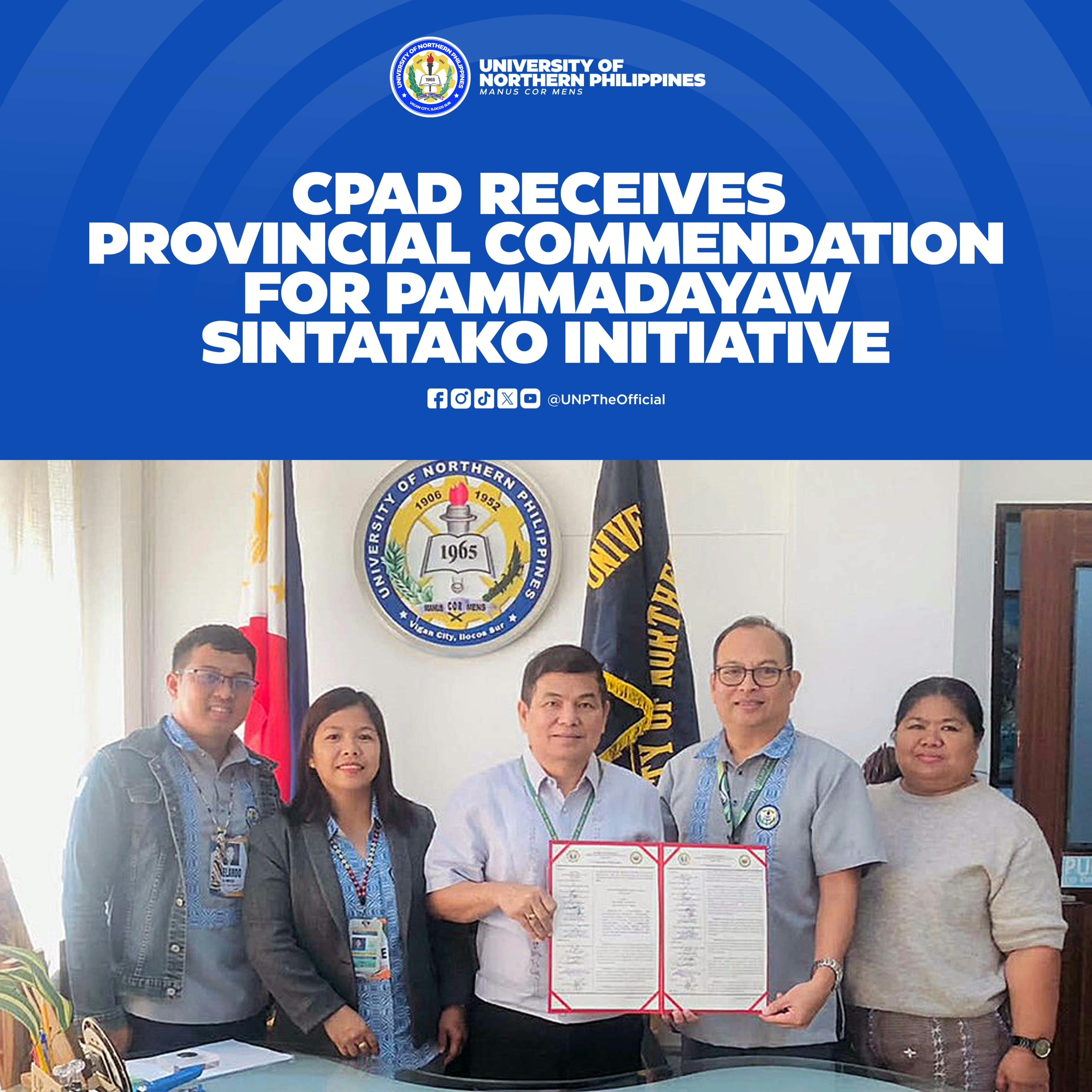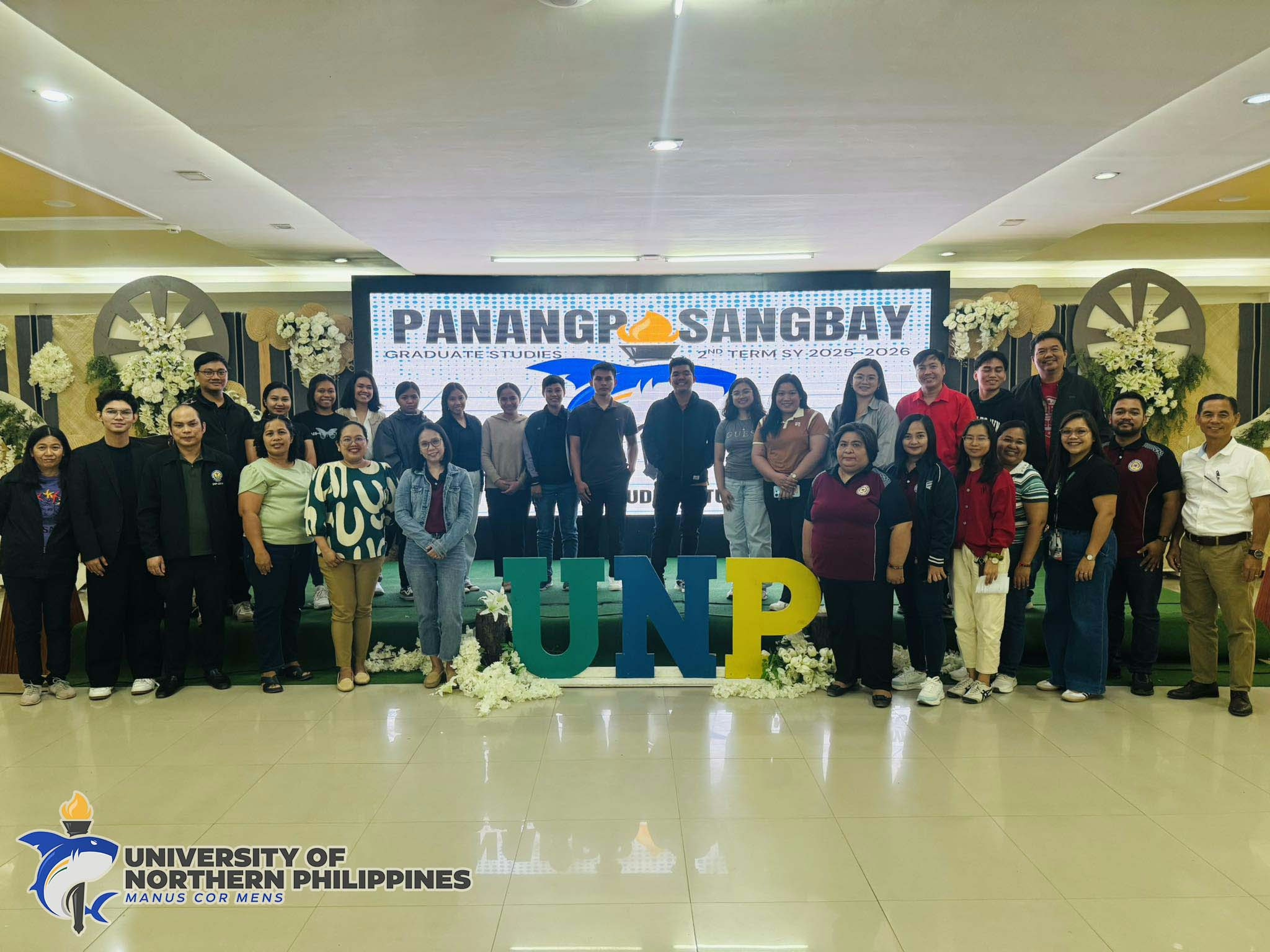The University of Northern Philippines (UNP) College of Medicine highlighted the importance of flexibility in health education and patient care during its 2nd Post Graduate Course, “Mastering the Art of Practicing Medicine in the Digital Age,” held on September 18, 2025 at the UNP Gymnasium. Marking a milestone since its accreditation as a Continuing Professional Development (CPD) provider in August 2024, the event was the College’s first postgraduate course to grant CPD credit units to participants.
Dr. Pablo Quedado, Dean of the College of Medicine, officially welcomed the participants and set the tone for the day’s discussions. In his address, he underscored the importance of engaging with pressing issues that continue to shape the landscape of medical education and clinical practice. Among these, he highlighted the growing role of artificial intelligence in healthcare, the prevalence of defensive medicine, the impact of social media on both physicians and patients, and the emerging health risks brought about by climate change. Dr. Quedado urged the participants to critically reflect on these challenges and to actively contribute to conversations that seek to improve both medical training and patient care.
In her message, University CPD Coordinator Dr. Luzviminda Relon called on the UNP community to take the lead in developing their own continuing professional development initiatives. She emphasized that by doing so, the University not only strengthens its capacity to deliver quality education and healthcare but also upholds its responsibility in fostering professional growth, innovation, and lifelong learning among health practitioners and educators.
The event’s centerpiece was the Dr. Antonio R. Lahoz Memorial Lecture Series, held in honor of the College of Medicine’s founder. Carrying the theme “The Physician as a Community Leader,” the lecture featured Dr. Nino Realin, a general surgeon and former Sta. Catalina Vice-Mayor, as this year’s distinguished speaker.
More than 300 health professionals, educators, and medical students gathered for the course, which tackled pressing concerns shaping medical education and clinical practice, including artificial intelligence, defensive medicine, the impact of social media, and the health risks posed by climate change.
Article by Dominetta Gonzalo.




